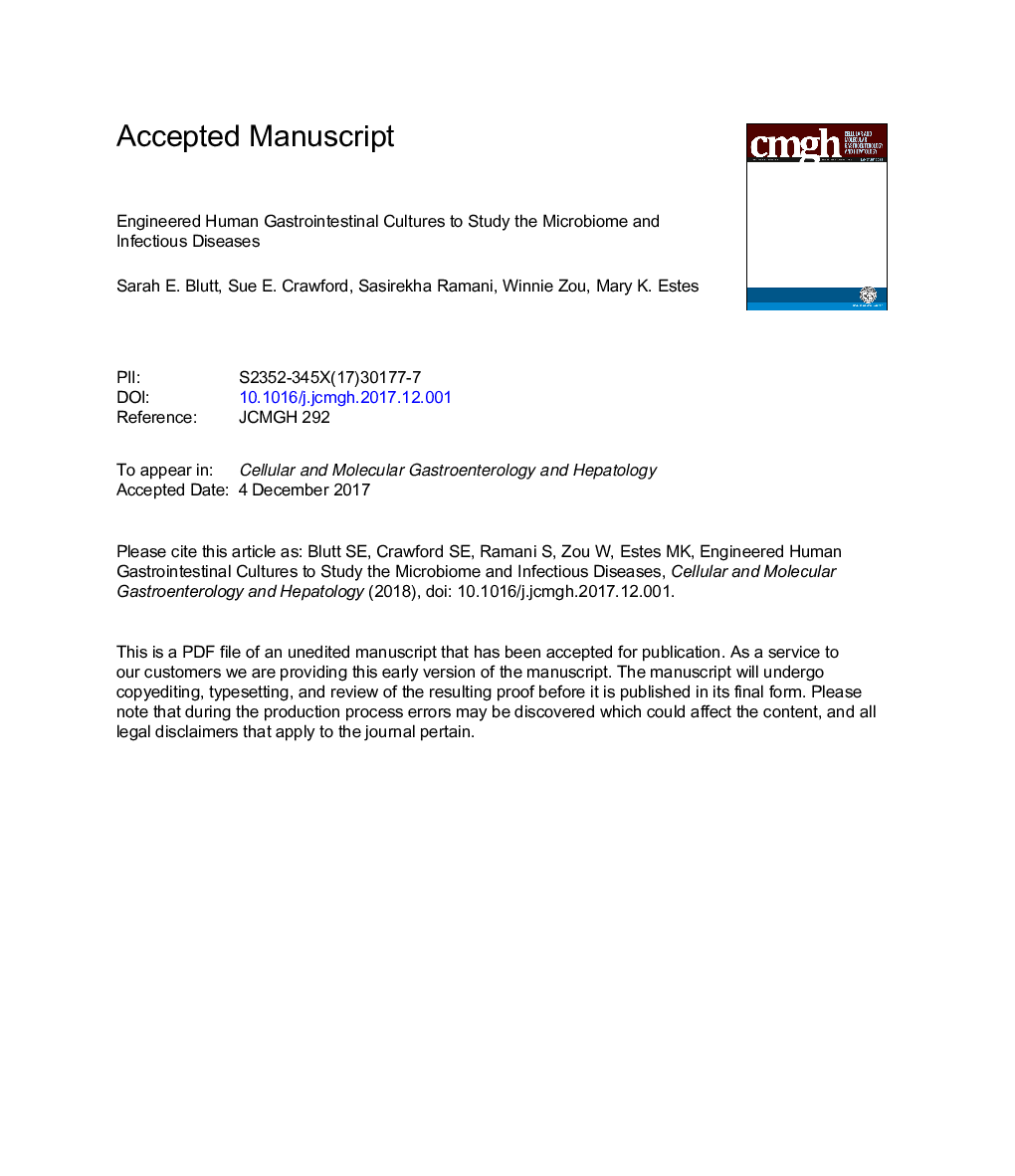| کد مقاله | کد نشریه | سال انتشار | مقاله انگلیسی | نسخه تمام متن |
|---|---|---|---|---|
| 8376252 | 1543155 | 2018 | 20 صفحه PDF | دانلود رایگان |
عنوان انگلیسی مقاله ISI
Engineered Human Gastrointestinal Cultures to Study the Microbiome and Infectious Diseases
ترجمه فارسی عنوان
کشتهای گوارشی انسان به منظور بررسی بیماریهای میکروبیوم و عفونی انجام شده است
دانلود مقاله + سفارش ترجمه
دانلود مقاله ISI انگلیسی
رایگان برای ایرانیان
کلمات کلیدی
موضوعات مرتبط
علوم زیستی و بیوفناوری
بیوشیمی، ژنتیک و زیست شناسی مولکولی
بیوشیمی، ژنتیک و زیست شناسی مولکولی (عمومی)
چکیده انگلیسی
New models to study the intestine are key to understanding intestinal diseases and developing novel treatments. Intestinal organ-like culture systems (organoids and enteroids) have substantially advanced the study of the human gastrointestinal tract. Stem cell-derived cultures produce self-organizing structures that contain the multiple differentiated intestinal epithelial cell types including enterocytes, goblet, Paneth, and enteroendocrine cells. Understanding host-microbial interactions is one area in which these cultures are expediting major advancements. This review discusses how organoid and enteroid cultures are biologically and physiologically relevant systems to investigate the effects of commensal organisms and study the pathogenesis of human infectious diseases. These cultures can be established from many donors and they retain the genetic and biologic properties of the donors, which can lead to the discovery of host-specific factors that affect susceptibility to infection and result in personalized approaches to treat individuals. The continued development of these cultures to incorporate more facets of the gastrointestinal tract, including neurons, immune cells, and the microbiome, will unravel new mechanisms regulating host-microbial interactions with the long-term goal of translating findings into novel preventive or therapeutic treatments for gastrointestinal infections.
ناشر
Database: Elsevier - ScienceDirect (ساینس دایرکت)
Journal: Cellular and Molecular Gastroenterology and Hepatology - Volume 5, Issue 3, 2018, Pages 241-251
Journal: Cellular and Molecular Gastroenterology and Hepatology - Volume 5, Issue 3, 2018, Pages 241-251
نویسندگان
Sarah E. Blutt, Sue E. Crawford, Sasirekha Ramani, Winnie Y. Zou, Mary K. Estes,
